Graham Reid | | 12 min read
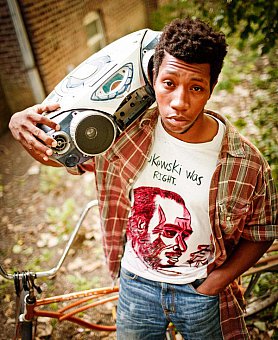
In that broad spectrum of characters, craziness and genius in popular culture – from Mormon rockers to gun-carrying hip-hoppers – Willis Earl Beal is unique.
And it's not for his backstory which involves medical discharge from the military, itinerancy and a period of homelessness, recording dozens of songs cheaply and giving them away before being discovered by Found magazine and then being signed to XL, Adele's label.
Nor is it for his two albums: last year Acousmatic Sorcery which was a startling compilation of his innovative lo-fi recordings, and now his studio crafted Nobody Knows which finds him revealing a soulful voice but retaining some of those disconcerting sonic effects.
And nor because he is authentic in a world of manufactured, groomed and media savvy performers.
What sets the articulate, self-educated and sometimes visionary WEB apart is the clarity with which he sees what has happened to him and where he is now, as you may see.
But in this conversation – which he is no hurry to curtail – I say it must be gratifying for him to be interviewed by someone from as far away as New Zealand.
“Because of my ignorance,” he says, “I wasn't aware of how far away New Zealand was, now that I am aware it is pretty gratifying, maybe for about two hours until I find something new to complain about.”
You are a fatalist?
I try not to be, but it's hard not to be.
I have liked both your albums for very different reasons: the Nobody persona you have adopted for Nobody Knows, is that a useful thing to keep others at distance or does it allow you a distance between Willis the person and Willis the public face?
The Nobody symbol has emerged as a protective mechanism for me but it didn't start out that way. It started as a vague idea and the image itself is a very stylised depiction of a person right before they are dying. They are clenching their teeth and the reason why the eyes are plus signs and not Xs is they are experiencing enlightenment.
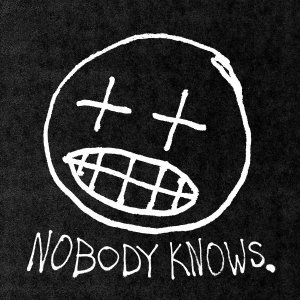 So that was what it started it as, but
now – as you suggest – that image has come to represent a shield
because, particularly in American pop culture, what they want to do
is get their hands on your face and market you in a particular way .
. . and categorise you as a black soul artist who is a modern
representation of what things used to be.
So that was what it started it as, but
now – as you suggest – that image has come to represent a shield
because, particularly in American pop culture, what they want to do
is get their hands on your face and market you in a particular way .
. . and categorise you as a black soul artist who is a modern
representation of what things used to be.
All of that stuff they said about me – that I'm a blues singer, but I'm not a blues singer and nor am I soul singer . . . The person that inspired me to start singing was Bob Dylan and old man Bob Dylan from Time Out of Mind. I never cared about the blues at all. So what that symbol represents is that stark kind of rejection of any sort of label that might be assigned to me.
That is a very hard thing to maintain, everyone wants headlines and bullet-points.
Yes. I wish I could have emerged as a more amorphous entity, but as it is people believed I was intending to record lo-fi music when in fact the music only sounded that way because a] I didn't know how to play instruments and b] I was just starting out and didn't have money for better equipment. There was nothing really romantic about my story, it was all just a series of mediocre incidents.
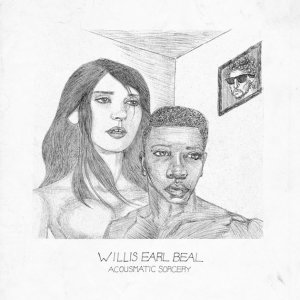 But they've got to market something and
I think the idea of a studio record initially was not as romantic as
me being this idiot savant. I don't think I dug it too much. But what
can you say when the alternative is going back to your shitty job at
FedEx.
But they've got to market something and
I think the idea of a studio record initially was not as romantic as
me being this idiot savant. I don't think I dug it too much. But what
can you say when the alternative is going back to your shitty job at
FedEx.
I could have turned it down but that wouldn't have been very pragmatic considering that as it turns out I have quite a bit to say and to contribute.
I have spent time with black American blues musicians and what is often said is that these people had a primitive and natural talent, but that actually denies the years that they have spent on their craft and the skills they have learned and bring to their music.
Listening to you speak, the black homeless guy is a very appealing story to tell for the media yet you being intelligent and articulate is a harder narrative to sell. NOt quite as dramatic in many ways.
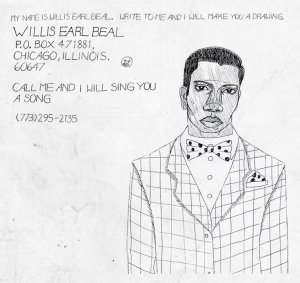 Yes, I appreciate that you think I'm
intelligent but I think I just learned how to speak from watching
movies and reading a lot of books. I'm a very concentrated collection
of influences. It's not that I'm intelligent necessarily, it's just
that like everybody else in America I have been immersed in pop
culture since the time I was born. So everything I am was influenced
by something elsewhere, so that's another reason why I feel like a
nobody.
Yes, I appreciate that you think I'm
intelligent but I think I just learned how to speak from watching
movies and reading a lot of books. I'm a very concentrated collection
of influences. It's not that I'm intelligent necessarily, it's just
that like everybody else in America I have been immersed in pop
culture since the time I was born. So everything I am was influenced
by something elsewhere, so that's another reason why I feel like a
nobody.
I feel that on the surface I am an entirely disingenuous human being who adopts these roles momentarily, but inside I am trying to get out because everything that comes out of my mouth is a cliché. I guess that is also what singing represents for me. It can be very, very pure when you sing out and there is nobody around, because there is something that gets revealed, a kind of sincerity, no matter what you are saying.
You could be cursing somebody out or you could be singing to Jesus, but the sincerity comes through in the voice and the intonation. That's why I subconsciously chose singing, but it definitely wasn't an attempt to be famous.
But you also auditioned and got through in X-Factor?
At the time I had already been singing on the streets in Albuquerque and had several ladies out there, but none of that worked out. And the full odyssey I felt I had been through with Found magazine and all that, only meant for nothing because I was back at my grandmother's house where I started. My grandmother liked American Idol and watched it all the time and she would tell me, 'I think you are a good singer and you could beat all those contestants'.
My grandmother is a really eclectic music listener, she listens to The Police and likes Pink Floyd, the Rolling Stones . . . those are broad spectrums you understand, but she's not a normal grandmother.
She'd say, 'You could get on there and sing Iggy Pop or James Brown as opposed to the cover of some Britney Spears song.' The X Factor had come to town and I wasn't working at the time and she said if I wanted to do it she'd give me $20 to go down there. I had to take two trains because it was out in the west suburbs so it was pretty expensive to go there.
I didn't have anything better to do and had some experience singing, and the worst that could happen was that I got a chance to win a $2 million recording contract.
I don't really know what I thought. When I was standing out there, there were all these star hopefuls and I recall distinctly standing under an umbrella with a mother and her two daughters, both of whom were trying out for the show. It was just a sad experience seeing the desperation. There was one guy had this special breathing contraption in order to keep his voice clear. And all of the costumes. It was this big circus.
But I went through it and ended up going to [bootcamp in] California over a lot of the other people, but you know how that story ends. [Beal quit]
It wasn't really about fame for me, it was more like a shot at stability because I'd lost so many jobs.
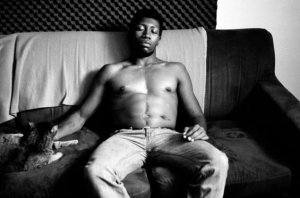 What I've read between the lines
about when you were homeless was you kept a sure sense of your self
and your dignity.
What I've read between the lines
about when you were homeless was you kept a sure sense of your self
and your dignity.
It comes off like dignity but it was really delusion. I've always had a very strong imagination, I don't mean in terms of implementing thing, just to to fool myself and turn myself into the protagonist of some plot. I'd always been an appreciator of independent films, particularly noir films, and so that's what being homeless was like to me. It was more of fantasy. So I could look at the scenarios and augment the meaning of what I was involved in to make it mean something greater. When in reality it was just a shitty deal to experience.
You were never in doubt that period would end and that something else would happen in your life?
It fluctuated. I never assumed the role or mindset of a homeless person. I was only homeless for two months – but I was 125 miles away from where I was born so the void would definitely leak in at certain times. I'd be walking down the street at night and one minute I'm kinda brave and the next minute I'm thinking, 'Dude, you have no future, don't you realise that?'
You can walk around for so long that there's physically no direction so it was, 'Where exactly are you trying to go?'
Homelessness was just a microcosm for the kind of disillusionment and aimlessness that I had always felt. I think my homelessness gets over-publicised because there is some romantic illusion to do that.
What I would like to emphasise is that there are a lot of people out there who feel like I did and still do, that they don't have a place for their minds to rest. I think Nobody Knows comes about as this generalised summary of the human condition, how we are all essentially fluctuating from being really ecstatic to being really horny to being resigned, to believing there is a light at the end of the tunnel.
I'm not saying anything definitively except that there are no multiple paths, there is only one path and that's the one we are all on. And I feel if maybe more of us could realise this we wouldn't have such a jaded bunch of young people and there wouldn't be such disharmony in society, and things would be a bit more naturalistic.
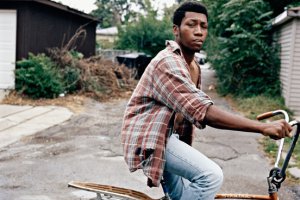 The things I am saying are incredibly
moot almost, but I don't see any other way to talk. I alienate a lot
of people and that is not my intention. I want to sing and live
naturally and feel like a real human being, but it's hard to do that
in today's society which prioritises capitalism, industry and
progress. These are all subjective terms. Those are the things I like
to highlight in my lyricism.
The things I am saying are incredibly
moot almost, but I don't see any other way to talk. I alienate a lot
of people and that is not my intention. I want to sing and live
naturally and feel like a real human being, but it's hard to do that
in today's society which prioritises capitalism, industry and
progress. These are all subjective terms. Those are the things I like
to highlight in my lyricism.
It also frees people up creatively. Everyone thinks they have to go and learn how to play guitar just to create music and they have to go down these channels. But that is a very divisive kind of mentality to take on.
You don't have to learn anything, you teach yourself how you want to play something, how you want to communicate. I want to be a small catalyst and show people that reality is not something that can be controlled by the powers that be. Reality is much larger than the so-called civilisation that we are a part of. That's what I am trying to.
In terms of music it's true that you can use a guitar any way you like. I notice at one point you said [anonymous outsider artist] Jandek is someone you are interested in. People make references to Tom Waits and the blues, but are these things that are put on your music after the fact, as it were? This is what we hear in it, but this isn't what you were intending.
What happened with the Tom Waits things was I was being interviewed by Pitchfork and was asked who were my influences and I made this stupid comment that I wanted to be the black Tom Waits. That in itself is totally redundant because . . . Well, it's like the Afro-punk movement, it is completely ridiculous. Punk itself is all-inclusive so there doesn't need to be Afro-punk, and nor does there need to be a black Tom Waits because his music is derived from black traditions, so for me to say that was just dumb.
But I was excited and things were taken out of context.
I like Tom Waits, but I also like [actor/director] Vincent Gallo, Scott Walker, Cat Power, Iggy Pop . . . so many different artists, like everybody does. But because I have a brown exterior, because I was homeless for a little while, because I'm from Chicago . . . these are very convenient notions to place on me.
And also because I wasn't good at playing instruments yet still recorded some music and used instruments . . . it was also this dream they had in their heads and was very unceremonious to me because I had to go out and prove to people I wasn't crazy – which I failed at in some cases – and had to prove I was a forward-thinking, modern human being rather than some shut-in. I'm still fighting against that because people don't take things seriously.
Could you imagine standing next to the Arctic Monkeys and Janelle Monae, they don't care about me, I am just a novelty.
It makes me want to quit, it really does, because I've create a record I really love and people just keep putting these labels on it, and there's no way to escape that initial introduction.
I spent some time with Wynton Marsalis many years ago and I've always remembered something he said, that the white person is always going be happier with a black man being a broke-down junkie than if he is educated, articulate and forward looking. Because that is threatening. You are talking about that cliché that people outside of you would rather impose.
Yeah, you're right. They are not bad guys and they have a lot of artists on their label and I'm not sure if it was their intention to market me in that way, I can't say yes or no. But everything definitely fell into place in that way, and not only did I end up being marketed as this kind of person but I am right smack down in the middle of a generation of peers which don't care about anything, it's like anything goes.
Everybody else has these sophisticated ways of approaching music and it is raunchy and highly controversial to the point where everyone's numb to it. Then I come along with my clunky little stuff and it is so frustrating. It just makes me want to make the money and get out, if I can make any money. It's a very strange thing.
In that regard, make some money and get out. It strikes me you are writing kind of person, do you have a novel or stories in you that you want to write. Because that would be a very different world to the one you are in.
I'm always going to record music and I'm always going to write. I consider it to be all the same thing. Ideally what I'd like to do is write and record, write stories, draw and paint and then put it all in a package and sell it by mail-order from my home in Montana or Oregon.
What I'm doing right now is making my name a commodity so I can sustain myself by possibly contributing to the slight inspiration of other people. I feel that is a fair exchange. I'm not saying I'm Michael Jackson, but I do work. It's a very Buddhist thing. I am putting my soul down on wax or paper and that is a service, and I just want to be compensated for that service . . . because I couldn't keep any other job.
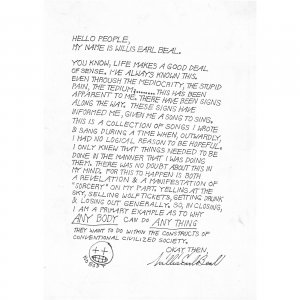 I just went to the Venice Film Festival
[for the film MEMPHIS in
which he plays a musician] and I was surrounded by
prostitutes. The people that were involved in my film, I'm not
calling them prostitutes, but there is so much garbage and muck and
mire in this world of capitalism that the only thing you can do is to
sell yourself for a meagre price and try to carve out some
naturalistic way of living.
I just went to the Venice Film Festival
[for the film MEMPHIS in
which he plays a musician] and I was surrounded by
prostitutes. The people that were involved in my film, I'm not
calling them prostitutes, but there is so much garbage and muck and
mire in this world of capitalism that the only thing you can do is to
sell yourself for a meagre price and try to carve out some
naturalistic way of living.
So you can do this now to put yourself in place where it easier for you to survive creatively?
Yes, that is it exactly.
Last one then, your life has been well canvassed after 24 when you came out of the military. I'm curious about what you were like at school and as a kid.
I was really good at reading comprehension, and everything else I didn't really care about. I barely graduated high school but I was in the drama club and wrote two plays, I was on the Public Access Television Channel in Park, Illinois. I was raised on basketball and was a big basketball fanatic so I grew up playing sports.
I was the oldest of two kids and a lot of my time was spent alone because my brother was a lot more demure than I was. I would create games for the both of us to play, like skits, and we would riff off each other. I was four years older so I would construct the situation and we would pretend we were in that situation and if we were living next to kids I would be the director of the film.
But as far as high school I didn't learn anything. The school education is completely useless in most cases. Children ought to be taught to fish and hunt and build houses.
Did you grow up with both parents?
My parents separated when I was at a very young age so my grandmother – my mother and father were in the picture – but it was her who listened to me rant and rave . . . and then fall asleep in her soup at night. (laughs)

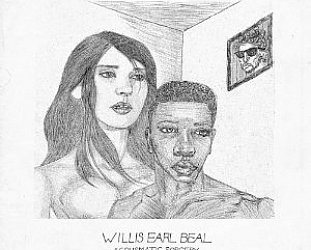
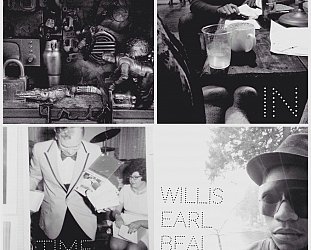

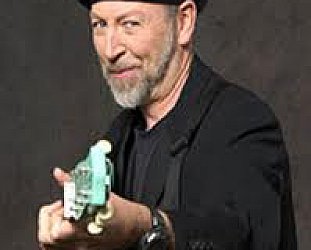
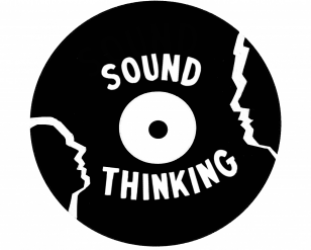
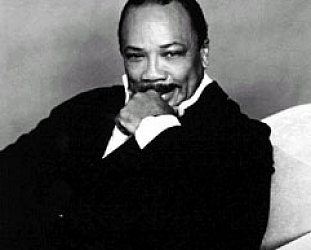
Shaun - Sep 27, 2013
wonderful interview graham. the man can talk, but you have helped with some lovely questions that keep a natural conversation going.
SaveI listened to the posted track, and then spent a very happy 40 minutes on his website listening to his stuff (and watching a short film) before reading the interview. Amazing voice, amazing music and amazing performer. Loved it, and might never have come across this if not for this article.
Now gonna tell my brother in london to go see him perform there next week- desire for all to experience such a gig overcomes my jealousy at being too far away in NZ to be able to attend.
post a comment